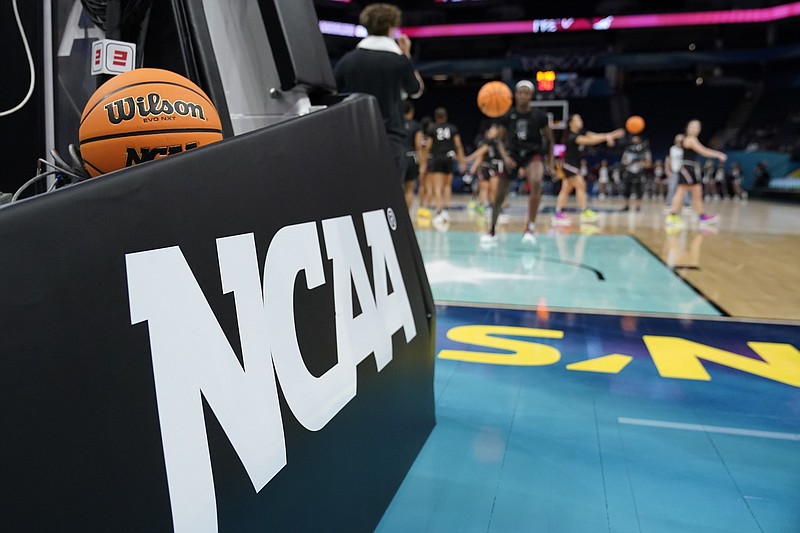NCAA athletes will be immediately eligible to play no matter how many times they transfer — as long as they meet academic requirements — after the association fast-tracked legislation Wednesday to fall in line with a recent court order.
The NCAA announced the Division I Council's decision will become official when its meeting adjourns Thursday. The change still needs to be ratified by the D-I Board next week, but that is expected. The new rules will go into effect immediately, though in reality they have already been enacted through a lawsuit filed late last year.
Transfer windows, which are specific to each sport, remain in place and require undergraduate athletes to enter their names into the portal at certain times to be immediately eligible at a new school. Graduate students can already transfer multiple times and enter the portal outside the windows while maintaining immediate eligibility.
A coalition of state attorneys general late last year sued the NCAA, challenging rules that forced athletes who wanted to transfer multiple times as undergraduates to sit out a season with their new school. A judge in West Virginia granted the plaintiffs a temporary injunction in December, lifting requirements for multiple-time transfers to request a waiver from the NCAA to be immediately eligible to compete. The NCAA quickly requested the injunction be kept in place throughout the remaining school year to clear up any ambiguity for athletes and schools.
The association has had to issue guidance to its members to clarify what that means for next season, but now the rules match the court ruling.
By eliminating the so-called year in residence for transfers, an athlete must be academically eligible at the previous school and not subject to any disciplinary suspension or dismissal to compete immediately at a new school. Transferring athletes must also meet progress toward degree requirements before competing.
"We hope that this practical approach to transfer eligibility requirements will encourage student-athletes to make well-informed decisions about transferring and the impacts such a move could have on their ability to graduate on time in their degree of choice, particularly as it relates to transferable credits," D-I council chairwoman Lynda Tealer, a University of Florida deputy athletic director, said in a release announcing the change.
The board will ask the committee on academics to explore creating a new metric — similar to the NCAA's Academic Progress Rating — that would hold schools accountable for graduating the transfers they accept.
The portal windows are currently open for both football and basketball, and the lifting of restrictions on multiple-time transfers has led to an uptick in athletes looking to switch schools.
In a notable move that would not have been permissible without a waiver under previous rules, Alabama offensive tackle Kadyn Proctor entered the portal in January after Crimson Tide coach Nick Saban retired, committed to Iowa, but then changed his mind during the spring and has reentered the portal with the intention to reenroll at Alabama.
The D-I Council also moved forward on legislation that would allow schools to be more actively involved in securing sponsorship deals for their athletes. Schools could still not directly pay athletes, but they could facilitate name, image and likeness opportunities between third parties and athletes.
